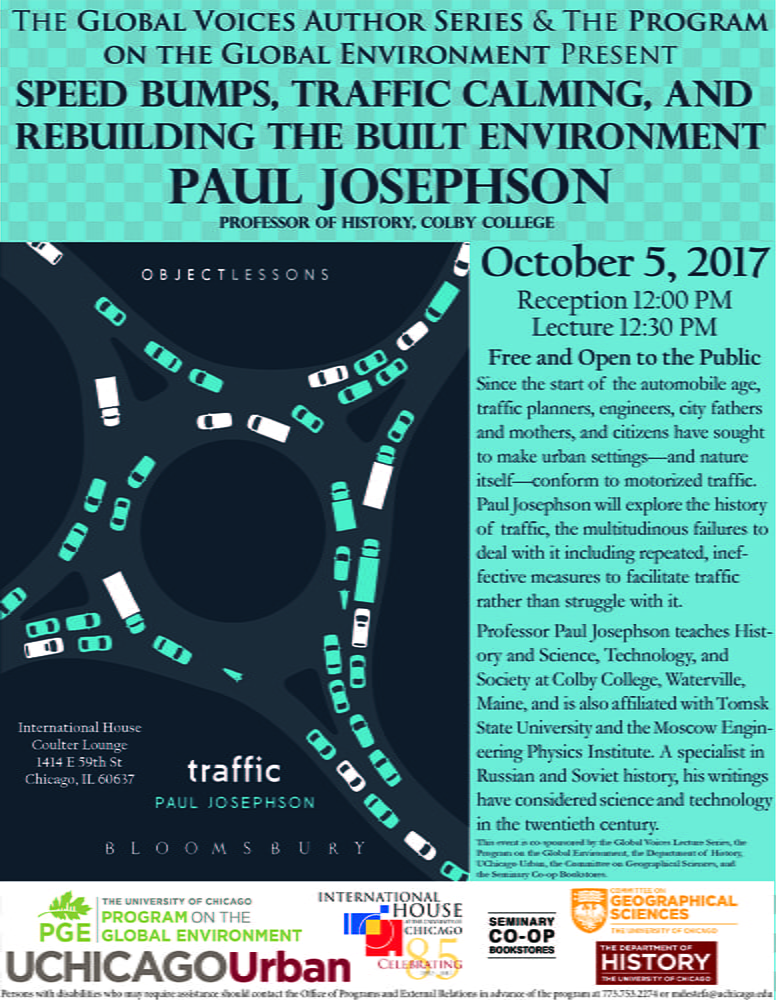Thursday, October 5, 2017
12:00PM-1:30PM
Coulter Lounge
Since the start of the automobile age, traffic planners, engineers, city fathers and mothers, and citizens have sought to make urban settings — and nature itself — conform to motorized traffic. The motorized imperative led to a series of fateful decisions across the globe about how to shape the built environment. It had tremendous public health, environmental, and quality of life implications. In this talk entitled Speed Bumps, Traffic Calming, and Rebuilding the Built Environment, Paul Josephson will explore the history of traffic, the multitudinous failures to deal with it including repeated, ineffective measures to facilitate traffic rather than struggle with it. Using the speed bump as a case study of one among many ways to calm traffic, Josephson will examine how cities have attempted to come to grips with motorized traffic. The talk is based on comparative analysis — the experiences of the US, the Netherlands, Germany, England, Russia, Brazil and China. In the end, the question is whether there exist metaphorical speed bumps in other areas of human life to make our living spaces for humans and their sensibilities, and not to enable the machine.
Paul Josephson teaches history and STS at Colby College, Waterville, Maine, and is also affiliated with Tomsk State University and the Moscow Engineering Physics Institute. A specialist in Russian and Soviet history, his writings have considered science and technology in the twentieth century. He is the author of 13 books including Industrialized Nature, The Conquest of the Russian Arctic, Would Trotsky Wear a Bluetooth? and Fish Sticks, Sports Bras and Aluminum Cans. He lives in Maine and Barcelona and runs marathons.
This event is free and open to the public. Copies of the book “Traffic” will be available for purchase. Noontime refreshments will be provided.
Co-sponsored by the Global Voices Author Series, the Program on Global Environment, UChicago Department of History, the Committee on Geographical Sciences, UChicago Urban, and the Seminary Co-op Bookstores.
